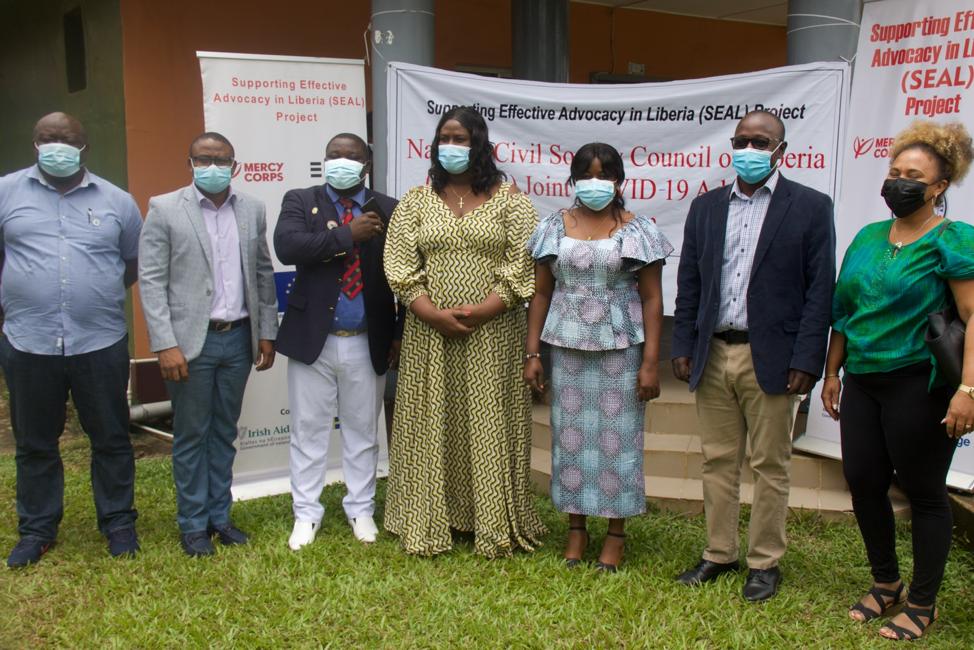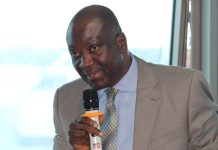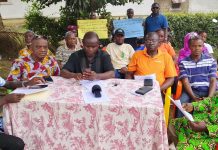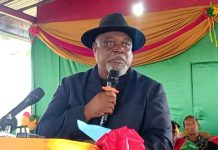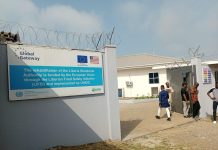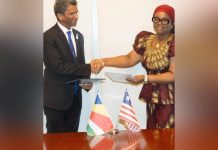Africa-Press – Liberia. A campaign seeking to discourage vaccine hesitancy among Liberians by engaging communities across the country to turn out and get vaccinated against coronavirus has been launched in Monrovia.
The campaign is part of Supporting Effective Advocacy in Liberia (SEAL), a project, which seeks to create awareness, provide information and carry out promotions on the new and deadly Delta variant of the coronavirus. It is being implemented by the National Civil Society Council of Liberia (NCSCL); Mercy Corps alongside 25 civil society and community based organizations.
“As we launch this COVID-19 advocacy action today, it is important that you understand the basic health COVID-19 protocols and other international health regulations of the virus,” said Joseph Weah the communication and advocacy lead at the National Public Health Institute of Liberia (NPHIL) at the launch over the weekend. “By doing so, it will put you in a better position in your advocacy and awareness drive.”
Currently, Liberia is experiencing its third wave of the pandemic. Up to date, the country has accumulated 5,740 cases and 283 deaths as of September 2, 2021 according to the National Public Health Institute (NPHIL). The height of infection was in June and it saw a staggering 219 of those cases were recorded on July 3 alone, the highest daily surge of the virus since the pandemic started
Accompanying a huge surge when cases increased by 3,254, was an equal surge in infodemic—a misinformation and disinformation that have characterized the global fight against COVID-19— across the country.
The myths and misinformation, which have inundated the public space, about the after effects of the vaccines are making many to shy away from taking the jabs, Dr. Moses S. Ziah, one of the lead doctors at the government run Star base Covid-19 treatment center, said.
“This situation is putting is putting the public in greater danger,” he said, “The myths about the vaccine are making efforts to contain the pandemic difficult.” From the vaccines not working to making recipients magnetic, these misinformation and conspiracy theories, he noted, have no evidence to back them.
However, People’s opinions that the myths are keeping people away from taking the vaccine is validated by a high level of vaccine hesitancy in the country with only 0.18 percent of an estimated population of 5 million people fully vaccinated between March and July this year.
This means out of the 95,423 doses of the AstraZeneca vaccines brought in the country, only 9, 135 people received their full jabs at that time. It is however anticipated that the launched of the awareness will help increase the number of vaccine recipients in the country.
Funded by the European, Irish Aid, KVINNA TILL KVINNA and Swedish International Development Agency (SIDA), the campaign intended to target communities in Montserrado, RiverCess, Grand Gedeh, River Gee, Sinoe, Maryland and Grand Kru.
Liberia has received two types of vaccines—the Johnson & Johnson, which is given as a single dose per person and the AstraZeneca, which is two doses per person. Vaccination is being administered at a number of health facilities in the country, including the SOS Hospital and the St. Joseph Catholic Hospital in Congo Town, Redemption Hospital in New Kru Town, the 14 Military Hospital on the Roberts International Airport highway and the John F. Kennedy Medical Hospital in Sinkor. However, people are not turning out to get them.
“One key activity is to enhance citizens’ awareness on their rights to basic services, mechanism to access them and document the evidence of access to services in SEAL’s targeted counties,” said Loretta Pope Kai, the chairperson of the National Civil society Council of Liberia. “In June this year, we strongly worked with SEAL partners to revise our advocacy strategy to strengthen awareness on the ground working through CSOs.”
Mercy Corps interim director of programs, Mwesigwa Bikie Isharaza, called on the CSOs to be robust in engaging the communities by giving them access to information that will enhance the fight against COVID-19.
This story was produced with support from Journalists for Human Rights (JHR), through the Mobilizing Media in the Fight Against COVID-19 in partnership with FrontPage Africa

